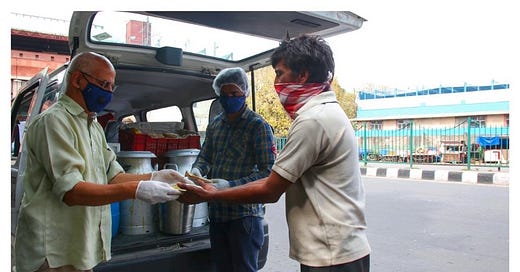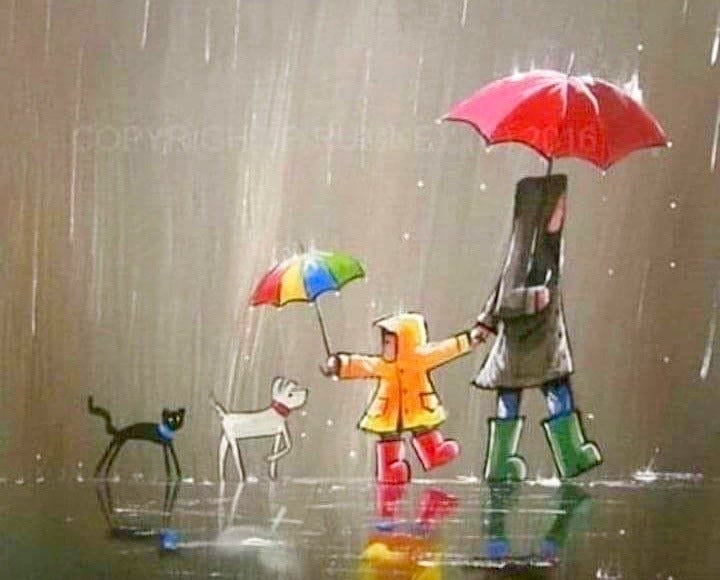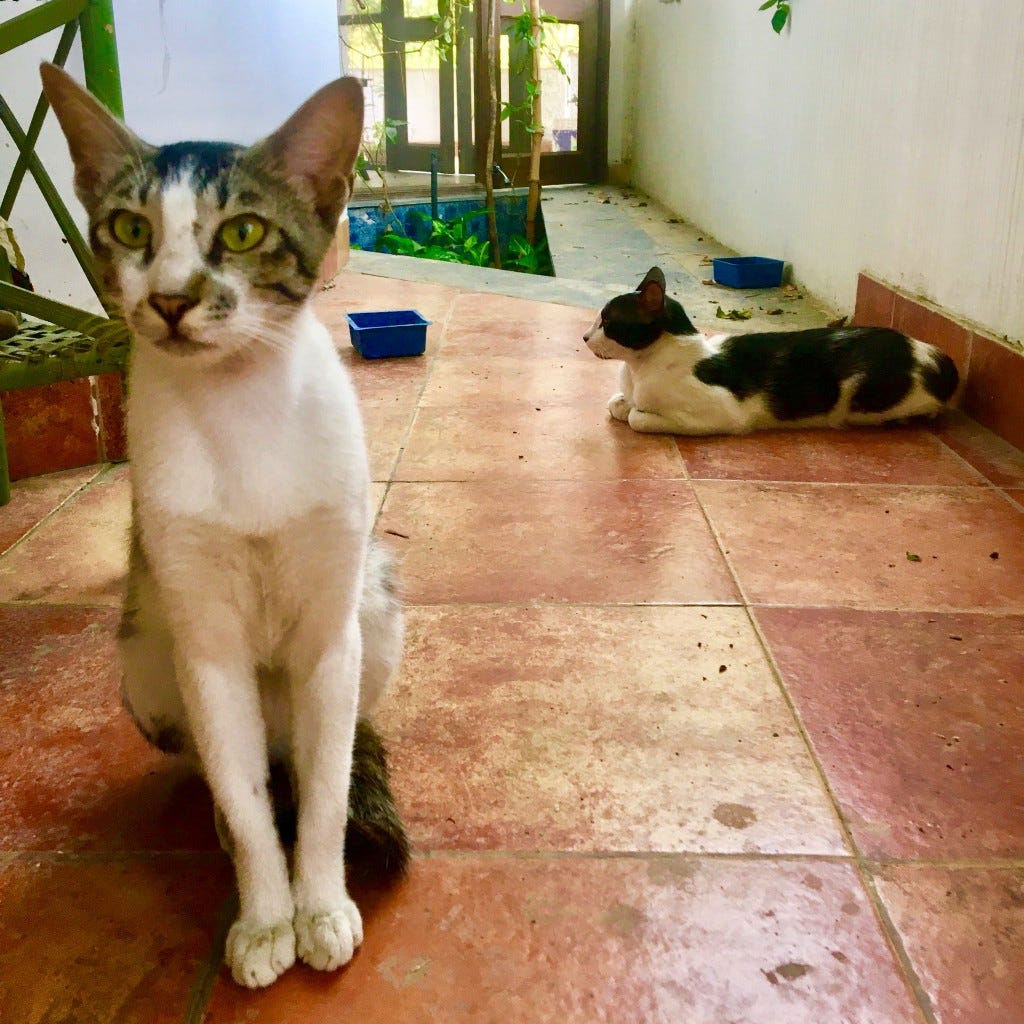UNLOCKING FROM THE LOCKDOWN Looking for one’s lost words
Searching for one’s lost words
Unlocking from the lockdown
The lockdown made it official.
We had been struggling to separate work and leisure, home and office, our personal from our professional and then we found ourselves locked in with all of our selves in one place for longer than we had imagined. I tried to keep the spaces between my work and family separate even as I found myself working for longer hours than before but soon there were no boundaries anymore.
Everything had spilled onto each other.
I was wearing my stressed-about-work face at the dining table with family and I was attending work meetings online with the laptop balanced on the kitchen counter as I planned meals.
It could have been a time of peace for those of us who were safe in our homes, but the humanitarian and economic crisis unleashed in the world outside made it impossible to not be anxious. For me, this was soon followed by waves of mourning.
DON’T SOLVE PROBLEMS, DEAL WITH THEM
I resorted to my usual checklist to keep myself afloat. Read a lot, write every now and then, find out what one can do to participate in the alleviation of pain and take on the work. Immerse myself head on into that which was causing the pain. All of these are complicated things. They almost always make us feel worse before a threshold is crossed and one begins to feel better. The most basic learning of adulthood is that there are no simple solutions. You don’t solve problems, you deal with them. There are no clear binaries to choose from. Do as much as you want to and it will never be enough. Your hard work may or may not prove to be effective. Your efforts may be good enough, and that’s the best you can hope for.
LEARNING TO FIGHT A LOSING BATTLE
As part of a country-wide team of volunteers who joined other essential service workers to provide food and relief to those who had been dispossessed by the lockdown, I found that the more we did, the more we discovered that we would never be able to do enough. While work, transport and services stopped immediately all around us in the cities, there was nothing in the design of the lockdown to sustain the precarious lives of those who depended on their meagre wages to be able to feed their families. Attempts to disseminate information were overwhelmed by the deluge of misinformation. Efforts to get the state to respond to those who are in need were routinely thwarted. The more we tried to connect, the more estranged we often felt.
How is one supposed to deal with this new reality? How does one prepare for a battle you know you will lose? How long does one continue work that will remain a drop in the ocean? How does one reassure aging parents and young children? And toughest of all, how does one keep relationships functional when our friends, colleagues and partners begin to crumble under the stress of a world that has changed too fast.
TAKING CARE OF OTHERS TAKES CARE OF US
I was lucky throughout the weeks of lockdown to have children and pets to look after and vice versa. Both teams have been great therapy partners. As I struggled to take care of our dog, cat and three children, their presence was enough to take care of me.
“I’m so glad I live in a world where there is rain,” my daughter said looking out of the window at freshly washed trees and grey skies today. Then she noticed my expression of surprise and said, “It’s a line from the book I am reading. Anne of Green Gables by Lucy Maud Montgomery.”
WHERE HAVE MY WORDS GONE?
As the children read, draw, watch fiction online and chat amongst themselves, I have spent a lot of time trying to write an essay on the country wide crisis of hunger, homelessness and abandonment of India’s working class population as an immediate aftermath of the lockdown that was meant to keep everyone safe. I am convinced I know what is to be typed yet I struggle to start when I do make the time for it.
I am flummoxed by this inability. Is there unacknowledged grief I need to process? Do I not have the language to express the dissonance of our times or am I afraid to speak in clear terms?
“Writing is always a step into courage,” a friend says helpfully. “You will find a way. When something isn’t working for a while, perhaps you need to step back.”
I get away from my desk and bring out a pile of summer curtains from a closet. By the time we have collaborated as a family to change the curtains in every room, we turn around to find that the light has changed in our home. There is orange where there was blue. White instead of red and green. A small physical act has transformed the aura around us.
This lockdown, we adopted three new cats. One of them has adopted me back and stays near us. She seems to be speaking to me, even though she remains wary. The other two come for food and let me admire them.
I use the phrase, ‘this lockdown’, as if I expect more lockdowns. Once you have lived through something unimaginable, you prepare yourself for the possibility of more.
MAKING LISTS TO CONNECT THE PIECES
I made many lists to keep me grounded. A list of new things I tried that didn’t quite work out, like trying to give our cat injections at home. My fingers trembled too much.
A list of new things I did that I hadn’t imagined myself doing, like confusing policemen at check posts on the Delhi-Noida border every time I crossed without proper authorization. I flashed my press card, showed them the packets of ration to be distributed and simultaneously said I was from the government of India.
Finally I made a list of things I will do if a higher power presses the reset button on my life and I have no prior commitments or backlog to catch up on. I was feeling overwhelmed by expectations and my guilt at underperforming and allowed myself a pocket of fantasy. Once there was a wish list to refer to, it wasn’t hard to take a pause and actually do the small things that replenish me.
SMALL MOMENTS AND BIG STAMINA
What will emerge from this muddle of the year 2020? Will the fog clear? Will people reclaim the power and agency that they have mercilessly been stripped of? Collectively we need to prepare for the long haul. The small moments will help us build the stamina that we need to face up to the big challenges that wait for us. The times demand a radical re-imagination from the citizen of her role and responsibilities.
I don’t know the step-by-step formula back to a more just and equitable world, but I do know which trail to choose, which whiff to follow, to lead us back to a new light.






